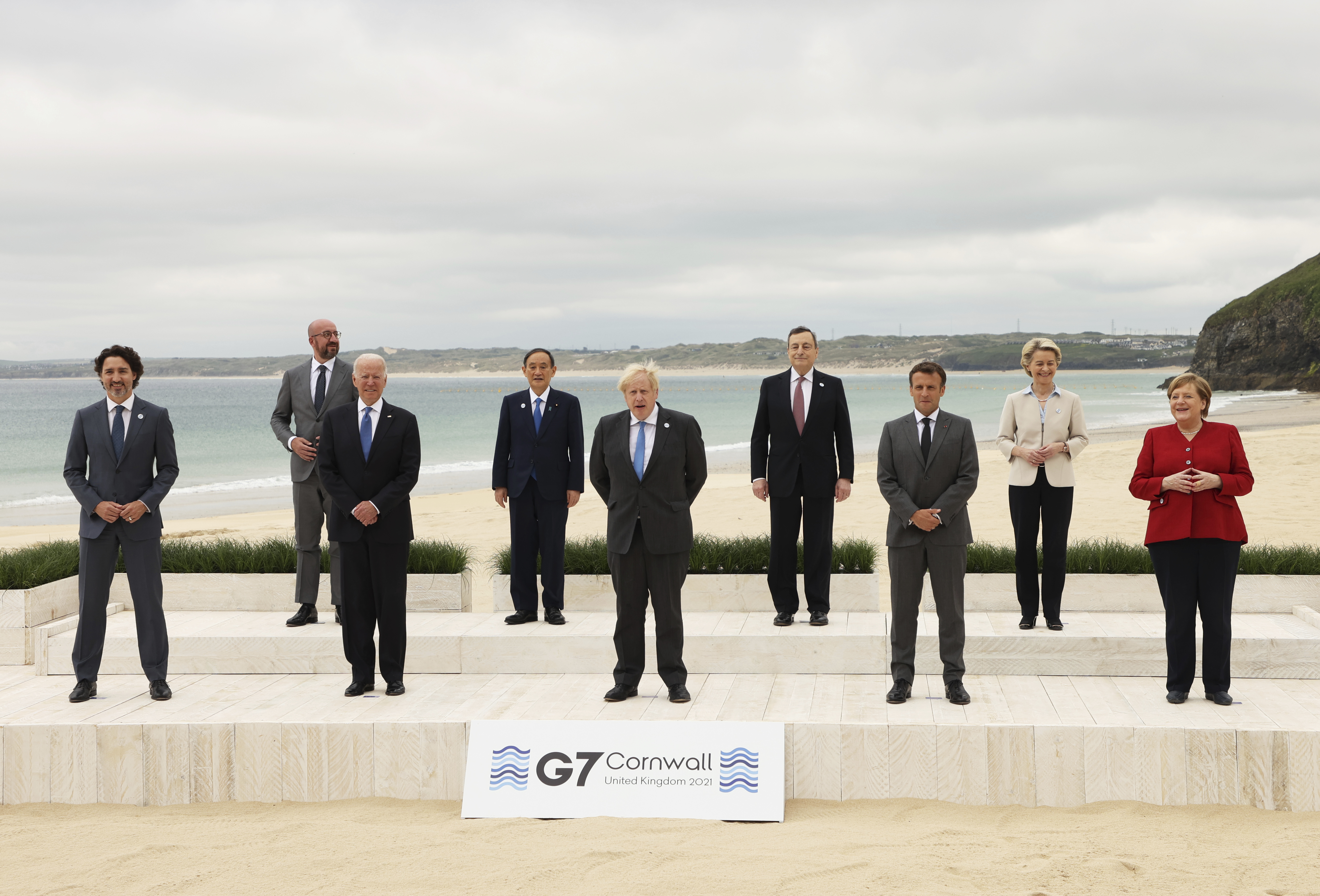A second Cold War has been brewing between global superpowers. The recent G-7 summit was merely the latest incident in the struggle for global hegemony between China and the U.S.
The seven western powers who met for the summit released a statement condemning the Chinese government for its treatment of the Uyghur people, as well as its crackdowns in Hong Kong and lack of transparency in handling the COVID-19 outbreak and pandemic. Looking back to the Cold War, the U.S. has already weathered a major conflict with a communist superpower. Looking forward, we are facing a similar confrontation – transcendent in nature with risk of a violent conflict.
But we often oversimplify the Cold War, thinking of it only in terms of the material factors at play. In doing so, we ignore human flourishing as the foundation of a successful society. Likewise, the current conflict with China is not merely a battle of physical production; it is a struggle between two different views of the human person and of society.
One defining moment etched in our collective memory is Russian President Boris Yeltsin’s gaping at the myriad options in an American grocery store in 1989. The choice, quality, and availability of items provided a stark contrast to the typical Russian grocery store. The picture still brings to mind the abundance of capitalism when compared to a command economy.
We often think of capitalism only in terms of its ability to outproduce other systems. Again, this is how we recall the end of the Cold War: The U.S. outproduced the USSR and emerged victorious. While that view may be technically correct, it is incomplete.
Wilhelm Röpke, the German free market economist, saw the conflict differently. As he wrote in his 1960 book, The Humane Economy:
One of the oversimplifications by which social rationalism distorts the truth is that Communism is a weed particular to the marshes of poverty and capable of being eradicated by an improvement in the standard of living. This is a fatal misconception. Surely everyone must realize by now that the world war against Communism cannot be won with radio sets, refrigerators, and widescreen films. It is not a contest for a better supply of goods – unfortunately for the free world, whose record in this field cannot be beaten. The truth is that it is a profound, all-encompassing conflict of two ethical systems in the widest sense, a struggle for the very conditions of man’s spiritual and moral existence.
Röpke’s insight is crucially missing in our current discussion about the future geopolitical balance between China and the U.S. The G-7 statement rightly focuses on the downsides of an authoritarian system, the lack of religious freedom in the Uyghurs, the lack of political freedom in Hong Kong, and the lack of freedom of the press in Wuhan. But behind each of these freedoms is a very specific view of what a human is.
Michael Novak once wrote that “without certain conceptions of history, nature, person, community, and the limited state, the very notion of ‘human rights’ makes little sense.” Either man is a being created by God and endowed with inherent dignity or he is an automaton of the state, valuable only to achieve its ends. But he cannot be both.
In terms of raw manufacturing power, China far surpasses the U.S. If the conflict is primarily about who can produce the most stuff, the jury is still out on who will prevail. According to AEI’s Dan Blumenthal, “disinformation, censorship, and propaganda are pillars of the Chinese Communist Party’s grand strategy.” Thus, a fall in production does not necessitate the fall of the system. Even if China was plunged into an economic recession, tight controls of information could allow them to maintain control.
The key isn’t merely to learn a lesson from the Cold War, it’s learning the right lesson. We must remember that mere production is neither the end of a society nor is it the sole byproduct of a market economy. Instead, the aim of a society should be to create flourishing for its members.
As Röpke explained:
If we want to be steadfast in this struggle, it is high time to bethink ourselves of the ethical foundations of our own economic system. To this end, we need a combination of supreme moral sensitivity and economic knowledge. Economically ignorant moralism is as objectionable as morally callous economism. Ethics and economics are two equally difficult subjects, and while the former needs discerning and expert reason, the latter cannot do without humane values.
Gross domestic product alone doesn’t capture whether the various ends of a people are satisfied. China may be able to manipulate production and improve GDP, but the gain in material wealth is only a small fraction of what makes human life worth living.
To achieve flourishing, we must have economic and religious freedom and a culture which grasps the unique value of the human person. Communism cannot be outproduced. It must be refuted in the realm of ideas by presenting a more compelling alternative.

